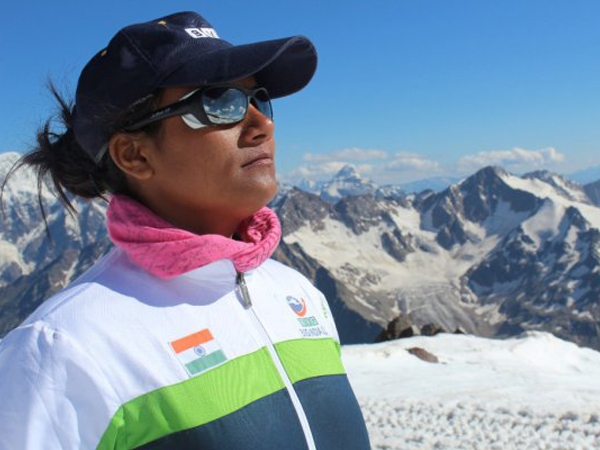
She was in the eye of controversy. She received more brickbats than bouquets. Her fault? She dared to make a ground-breaking documentary, India’s Daughter-a film that questioned the stereotypes, which we have been guilty of perpetuating but refusing to accept, by conveniently pushing it away under the carpet of culture, customs and beliefs. Not one to mince words, in this interview, Leslee is unapolshares her emotional challenges, the need to incorporate holistic education and why we need to re-programme the minds of both, men and women.
What prompted you to make India’s Daughter?
It was entirely the motivation of wanting to amplify and extend the voices of the protestors and their cries for change that compelled me to make this film. The gang-rape itself of course shook me to the core, as the relentless and all too frequent violent rapes and abuses of women the world over do to me again and again. How sadly ironic it is to me that it was forward-looking India that motivated the film and backward-looking India that has banned it.
During the filming, were there moments of anger, despair, and helplessness?
It was almost impossible to keep calm and dispassionate for several reasons. Firstly, I was paying for the costs of filming personally. This meant that I could not afford anything extraneous, which wasn’t absolutely essential, to getting the film made. But, I did break down at one point. I woke up in my Delhi hotel room at 5 am and was in the grips of a panic attack. I wanted to go home. It was 5.30 am in Delhi and around midnight in Copenhagen where my family was.
My daughter, Maya, then 13 and a half, picked up the phone. She immediately knew I was in trouble, though I tried to sound ‘normal’ and I soon cracked and broke down, saying I needed her dad to book me a flight, because I had taken on too big a task and couldn’t finish it. She proceeded to talk me down from the panic. She ordered me to get a pen and paper (which I pretended to get) and told me to write down all my problems and then start solving the little ones first. And then she said words that I shall never forget: “and Mummy, you are not coming home, because I and my generation of girls are relying on you”. I stayed.
Rape and women-related crimes is a global issue. Will we ever tide over these?
Not unless we do something absolutely drastic and systematically re-educate our future generations. We are currently being nurses, dressing the wounds inflicted by the symptoms of the disease of gender inequality. We need to become surgeons and cut out the disease at the root.
What tangible changes do we need to bring about for women to start living a life of respect and dignity?
Women MUST report rape and abuse. They must not only report it, but insist that it be prosecuted. They have to stand up and demand their rights when their rights are so obviously denied to them. They must resist when told that the dignity of the family is more important than their personal suffering. The shame belongs to the perpetrators and to society which teaches these men how to view women.
They must strike and revolt against unjust controls as far as their autonomy and independence is concerned. And they must join forces with other women for strength and support, when they are not getting it from their families or the men in their lives. They should form new ‘families’ of men and women who care. The prime change for men is to stop feeling that they have an entitlement, to be served by women and be obeyed by women. They have to give up their assumed right to control the ‘women in their lives’, whomsoever they are. They have to be ready to give up the balance of power they have held and insisted on holding since societies began.
Men and women are wired by circumstances that their cultures present to them. What were your experiences of dealing with men in India?
Of course it was as varied as experiences with human beings always are, so it is very hard to generalise my dealings with men. There were men who tried to cheat me, but then my own co-producer, a woman, cheated me and blackmailed me, so that’s not a ‘male’ thing only. But the one thing I can generalise: I hated being stared at by men in the streets, in autorickshaws etc.
There’s a sense of entitlement to stare at you in an invasive way. And I was constantly reminded of the insight I was given into Nirbhaya’s character and strength, by one of her closest friends who told me that when Nirbhaya was stared at by men, she would stare right back and say: “What are you looking at? I am not your property.” Sadly I couldn’t include her interview, which spoke volumes of Nirbhaya’s character, because the friend’s brother and father forbade her to come on camera!
Did it bother you when the wife of one of the convicts supported him?
Yes, it hurt me and mostly because she was not a ‘weak’ submissive character. She was strong and feisty and really remarkably intelligent. Had she not been born into that community and been held down, she could have been a very empowered and strong participant in society. That’s what hurt; even she had been programmed by society to think the way she did: that a woman is only a reflection of a man and without him she is of no value. It’s not just men who are brainwashed and programmed by societal, cultural and religious narrow-mindedness, it’s women too of course. And women need to be re-educated just as much as men, to insist on their right to be equal, to find their voices and become confident and empowered.
Do you think ‘only’ education can change the mindset?
I am 100 per cent convinced that it is only education that can change things for women the world over. And it is specifically only education of the right kind – not numeracy and literacy, but education in respect, in life skills, in moral values, at the RIGHT age. Until and unless we provide HOLISTIC education to the Early Years education of the world’s children, the mindset will continue to express itself in the violation of the human rights of women and girls.
Do you think women’s rights groups are able to garner the kind of attention that is needed? Or do you think armchair activism is what we suffer from?
To some extent my bitter and shocking interaction with that hostile section of women activists in India (“the Kavita Krishnan Posse”) has colored my view of the motivation of some women’s rights groups. They are tragically ‘human’ and flawed; the pressure they endure from efforts to combat an immovable system, the extremity of their struggle to change what seems unchangeable, with only small advances being made while the inequity continues, leads them into the jungle of ego and frustration that often shoots their actual objectives in the foot.
I wouldn’t call them ‘armchair activists’ – that would be unfair given they achieve a great deal. But their achievements are tantamount to emptying the ocean with a teaspoon. Having said that, there are individual activists who are utterly amazing and selfless in their pursuit of justice. Sunita Krishnan is one such heroine of mine.
Did you see a shift in you, after the filming?
The biggest shift in me was to learn to prioritise values and what to spend my life and time on. When you have the sort of deep and compelling insights that I got on my two-year journey making this film, and when you become aware with such searing clarity about what the solution is to a scourge that plagues the world, you have no choice but to work night and day to try and address it.
Do you think reformation is important for convicts and criminals to give them a chance to lead a more meaningful life?
I was very impressed by what appeared to be an ethos of reformation at the Tihar Jail. There are signs everywhere on the prison grounds about reformation rather than punishment, and this impressed me greatly. Especially in comparison to British prisons which I visited some years back while making a film on the ‘Birmingham 6′ case (one of the biggest cases of miscarriage of justice in the UK). But I have to say, in all honesty, that as far as reformation in prisoners’ attitudes to women is concerned, I don’t have much hope.
One of the remarkable surprises I had in interviewing seven convicts over 31 hours, was that I saw not one second of remorse in these men. They don’t feel remorse because they don’t really truly believe that they have done wrong. The programming of their brains and character from the first moment they drew breath in the world, has taught them that women are inferior and of lesser or no value. They say ‘everyone’s doing it’ – their ‘superiority’ to women is the norm, and therefore real reformation is not possible for them. We need to focus on getting it right for the new generations by educating them in right and wrong, in equality of all human beings, regardless of gender, religion, colour…
Doesn’t the meaning of empowerment differ for different women, across countries and sections of society?
Yes, it does, because their disempowerment in effect differs in degree and characteristic the world over. But true empowerment (not relative or piecemeal) can only come from true equality, and we are a long way from that in every single country of the world.
Do you think women are their own worst enemies?
They can be, but this always is understandable and to be expected in some way. The struggle for true equality is so great that they would have to be superhuman to always do the right thing by other women. Some women are superhuman and manage to do this, most aren’t and don’t. And women are also programmed to accept subservience, so in that way they collude with patriarchal male domination. The enemy is inequality.
Image Courtesy: Claus Boesen
More on>> Balancing Act




